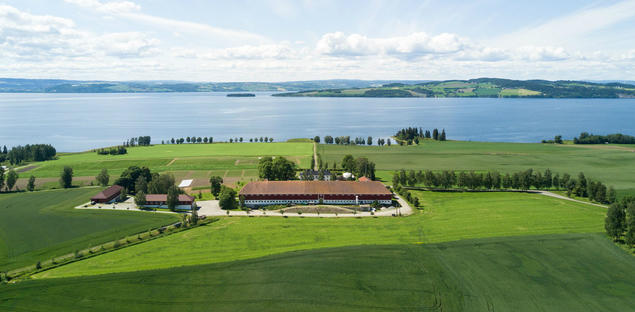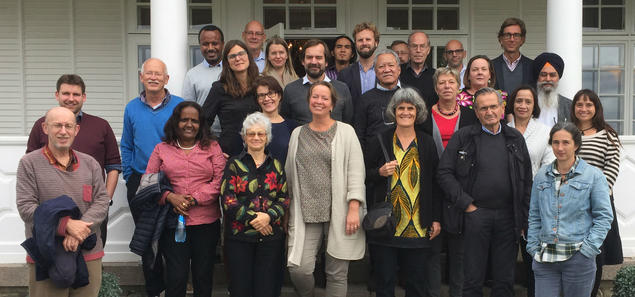Can teamwork yield better crops?

Practicing participatory approaches to plant breeding can help bring about promising new crops for food production - and thus help meet farmers’ and consumers’ needs at the same time.
This is but one of the many encouraging findings which were discussed at a recent workshop organized by Noragric of the Norwegian University of Life Sciences together with the Fridtjof Nansen Institute (FNI) a part of a Noragric-led project that seeks to map and to evaluate the current status of participatory approaches within plant breeding. The three-day workshop took place at beautiful Staur Gård in Hedmark, Norway, 18-20 September, and was attended by longstanding experts in genetic resources and participatory plant breeding from across the globe.
Enhancing diversity
The overall focus of the workshop, titled “Farmer participation in plant breeding programs – the state of the art”, was the concept of participatory plant breeding (PPB), a type of plant breeding which comprises a wide diversity of approaches to enhancing crop diversity. Broadly speaking, PPB is plant breeding based on collaboration between breeders and farmers, and which may also involve social scientists and consumers. The objectives of PPB can vary from increasing the yields and profitability of crop production, breeding for specific and local conditions, addressing challenges posed by climate change, to enhancing farmer skills and promote empowerment.

What is participatory plant breeding? Short video
An important backdrop for PPB is the recognition that while traditional breeder-directed breeding programs have been effective at developing crop varieties for farming systems that are fairly homogenous, they have been far less effective in areas where farming is more risk-prone and complex. As is stated by the EU-funded, international research program Diversifood, “even though participatory plant breeding has been practiced for only about 20 years and by relatively few groups, the effects on both biodiversity and crop production are impressive.”
Broad expert group
The workshop at Staur Gård gathered long standing PPB-experts from around the world, including breeders, academics, representatives from the Crop Trust, as well as NGOs and representatives from government ministries. Among the issues on the agenda were PPB case-studies, issues relating to climate change and crop breeding adaptation, sustainable food production, and the bottlenecks and opportunities stemming from law and policy.
The workshop is organized as part of a comprehensive project coordinated by the Global Crop Diversity Trust to collect and make available wild crop relatives. To see the full seminar program, click here.
Related FNI publications:
- Benefiting from Diversity in Nepal
- Participatory Barley Breeding in Syria
- Farmer Innovation in Tigray, Ethiopia
- Seed Legislation in Europe and Crop Genetic Diversity
- Linking access and benefit-sharing for crop genetic resources to climate change adaptation
- ‘Stewardship’ or ‘ownership’: how to realise Farmers’ Rights?
- Farmers’ Rights: Evolution of the International Policy Debate and National Implementation
- Historical Context: Evolving International Cooperation on Crop Genetic Resources
